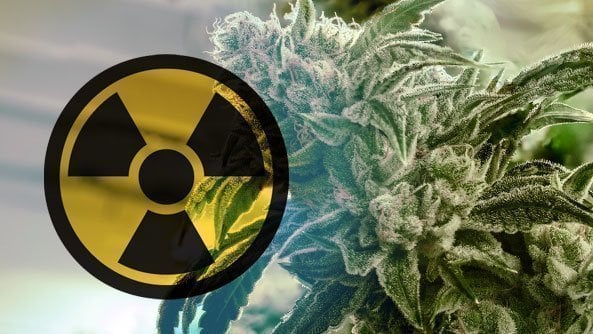Irradiation, a process involving exposure to ionizing radiation, has become a common practice in the cannabis industry, touted as a method to eliminate microbial contamination and ensure product safety. However, recent concerns have emerged regarding the potential negative effects of irradiation on cannabis quality, potency, and consumer health. In this article, we’ll delve into the dark side of irradiation in cannabis and why it’s crucial to reconsider its use in the industry.
Understanding Irradiation in Cannabis: Irradiation involves exposing cannabis products to ionizing radiation, such as gamma rays or electron beams, to kill bacteria, fungi, molds, and other pathogens. While irradiation has been used for decades in various industries, including food and medical sterilization, its application in cannabis has raised significant concerns among consumers, advocates, and industry experts.
The Problem with Irradiation:
- Loss of Terpenes and Cannabinoids: One of the primary concerns associated with irradiation is the potential loss of terpenes and cannabinoids, the aromatic compounds and active ingredients responsible for the flavor, aroma, and effects of cannabis. Studies have shown that irradiation can degrade these compounds, leading to a decrease in potency and overall quality of the product.
- Formation of Harmful Byproducts: Irradiation can also lead to the formation of harmful byproducts, such as free radicals and other reactive oxygen species, which may have adverse effects on human health. While regulatory agencies assert that irradiated cannabis is safe for consumption, the long-term health implications of consuming products treated with ionizing radiation remain uncertain.
- Masking of Contaminated Products: Another concern is that irradiation may mask the presence of microbial contaminants in cannabis products, giving consumers a false sense of security. While irradiation can effectively kill pathogens on the surface of the plant material, it may not eliminate contaminants present within the product, posing potential health risks to consumers.
The Case for Home Cultivation: Given the potential drawbacks of irradiation, many consumers are turning to home cultivation as a safer and more reliable alternative. By growing their own cannabis, individuals can have complete control over the cultivation process, from seed to harvest, without the need for irradiation or other chemical treatments.
Benefits of Home Cultivation:
- Quality Control: Home cultivators can ensure the quality and purity of their cannabis products by using organic growing methods, avoiding synthetic pesticides, fertilizers, and other harmful chemicals. By cultivating cannabis in a controlled environment, growers can optimize growing conditions to maximize potency, flavor, and overall quality.
- Potency Preservation: Growing cannabis at home allows cultivators to preserve the potency of the plant by avoiding irradiation and other processes that may degrade cannabinoids and terpenes. By harvesting fresh, unadulterated cannabis flowers, home growers can enjoy a more potent and flavorful experience compared to irradiated products.
- Customization and Variety: Home cultivation offers the opportunity to experiment with different strains, growing techniques, and cultivation methods, allowing growers to customize their cannabis experience to suit their preferences and needs. With a wide variety of cannabis genetics available, home cultivators can explore unique flavors, aromas, and effects that may not be readily available in the commercial market.
Empowering Consumers: By advocating for home cultivation and raising awareness about the potential risks of irradiation, consumers can empower themselves to make informed choices about the cannabis products they consume. Whether for medicinal or recreational use, home cultivation offers a safer, more sustainable alternative to irradiated cannabis, allowing individuals to take control of their health and well-being.
Conclusion: In conclusion, the use of irradiation in the cannabis industry raises significant concerns regarding product quality, potency, and consumer health. While irradiation may effectively eliminate microbial contaminants, it also poses potential risks, including the loss of terpenes and cannabinoids, the formation of harmful byproducts, and the masking of contaminated products. As such, it’s time for consumers to reconsider the use of irradiation in cannabis and explore safer alternatives, such as home cultivation. By growing their own cannabis, individuals can ensure the quality, potency, and purity of their products while avoiding the potential drawbacks of irradiation.
Read More
Cannabis Clones and ALS: Can They Improve Quality of Life?
Cannabis Clones as an Adjunct Treatment for HIV/AIDS
Cannabis Clones and Glaucoma a Natural Approach to Lowering Intraocular Pressure













